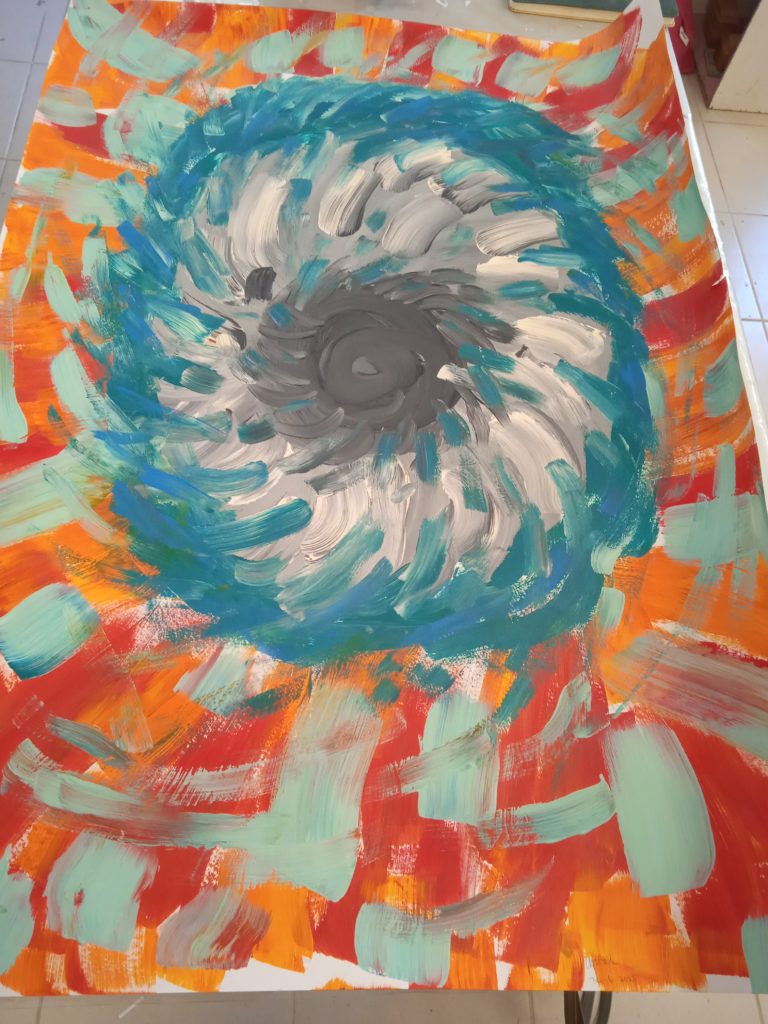The wedding was beautiful, the sheva brachos were wonderful – it could not have been more lovely in any way!
At the end of Shabbos sheva brachos, a close friend of my son came over to me and asked me, “Do you know anything about psychology?” (I’m guessing it was probably because when my son spoke he said how he didn’t need the support of anyone else during the dating process because he was able to talk to me about everything.)
“Maybe a tiny drop. Why?”
“What to you do when you have to say goodbye to a close friend?” he wanted to know.
I could see the heaviness in his eyes. “You have to let yourself feel sad,” I told him.
Then I shared with him about how emotional I had been the week before. (I told you about my waterworks already.) That as happy as you are for the person getting married, you recognize and feel the loss of the current relationship with them, and it’s important to recognize it and let yourself feel the sadness.

The next day I was driving my fifteen year old to the bus stop the next morning, he told me, “I caught something from you at the wedding.”
Puzzled, I asked him what he meant.
“Being emotional.”
He said he was feeling a lot of sadness during the wedding, that it felt like saying goodbye to his brother.
And again, I said, you have to let yourself feel it. You can’t squash your feelings down because they don’t go away. They just come out unexpectedly in different directions.
The day of the final sheva brachos, I went to the shiva of a friend. As I told her, it’s a gift in Judaism that there’s a transition period between major life events and the step after that event. When a close family member dies, the person doesn’t go back to day to day life as soon as the funeral is over. There’s a week long period to process the loss of the loved one.
Joyous events also need emotional transition time. When someone gets married, he has daily celebrations for him for the week following the wedding. As valuable as this is for the new couple to support their transition to married life, it’s also important for those who love them, to have a bit more time to be with them and more gradually let go.
We made the final sheva brachos in Yavneel, and I really wanted to speak. (Actually, I wanted to speak at the Shabbos sheva brachos but was concerned that my emotions were too close to the surface and might bubble up and keep me from saying what I wanted to say. )
However, it’s not the norm for women to speak at sheva brachos and I was less comfortable speaking in front of the Yavneel community crowd versus the family crowd on Shabbos. My husband knew I was very uncomfortable about speaking when the rav was there, and simply went over to ask if it was okay. He said it was fine, and so I did.
This was important to me, because I felt it was meaningful to my son and new daughter-in-law. And it was also valuable for me in my own process as a mother, to share some of my appreciation about who my son is, and thank Hashem for His incredible kindness to our family, in bringing yet another wonderful person into our family.
I share this because there are so many feelings when a close family member gets married, and often people feel guilty for not being wholeheartedly happy about it. It’s completely normal to have those mixed feelings, and it’s important to find a way to give those feelings space, in order to process them and then release them.
Avivah

2 Responses
Thank you for sharing! It’s not a topic that gets a lot of attention. It’s so important to know that as happy as the wedding is, it’s normal to feel some loss of what was.
There’s so much of the inner experience that is widely experienced but not widely shared, and it makes it harder for people to think that everyone else is unilaterally happy they alone are feeling those mixed emotions.